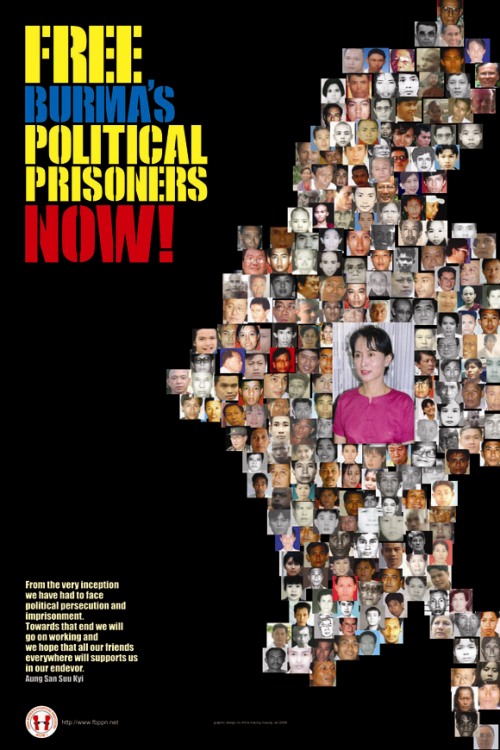Mie Mie is a member of a pro-democratic group, “the 88 Generation Students”.
“The 88 Generation Students” consists mostly of executives from the major pro-democracy uprising in 1988, when Burma had been under military rule for 26 years and the economy of the country was in ruins.
 Mie Mie was a member of the first demonstrations in August 2007, which protested against a sudden increase in fuel prices, which are set by the state. She was quickly forced to go into hiding as the authorities launched a manhunt for those they believed were leaders of the protests. Through the night of 21 August, 13 key activists in “the 88 Generation Students” were arrested.
Mie Mie was a member of the first demonstrations in August 2007, which protested against a sudden increase in fuel prices, which are set by the state. She was quickly forced to go into hiding as the authorities launched a manhunt for those they believed were leaders of the protests. Through the night of 21 August, 13 key activists in “the 88 Generation Students” were arrested.
Sentences
Mie Mie was sentenced to 65 years imprisonment in Insein prison in Yangon on 11 November 2008. Since then she has been transferred from Insein prison to Pathrin (Bassein) in Ayeyarwaddy county jail south-west of the country.
She is charged with several conditions and will likely receive additional sentences.
Prison Condition
According to a reliable source who spoke in April 2008, Mie Mie early in 2008, refused medical attention for heart problems. She did finally meet a doctor, but the source did not know when, or if the treatment was satisfactory, but as far as we know she has no heart problems worsened.
spoke in April 2008, Mie Mie early in 2008, refused medical attention for heart problems. She did finally meet a doctor, but the source did not know when, or if the treatment was satisfactory, but as far as we know she has no heart problems worsened.
Mie Mie should have been questioned frequently. Prisoners are often tortured or abused in other ways during interrogation, but Amnesty International has no information about how she has been treated.
More than 100 of the recently jailed dissidents have been transferred from Insein prison to other prisons around the country. The prisoners in Burma are generally dependent on the family members, who give them medication and extra food, and this becomes very difficult when they are kept far away from where the families live.
Access to medical care in Burma’s prisons
In addition to the experiences of Mie Mie, Amnesty International in 2008 documented cases where prison management refused medication or treatment to political prisoners.
The Red Cross has not been able to visit prisons in Burma since 2005. Prison conditions are poor, and prisoners do not receive adequate food or necessary medical treatment.
International standards provide a minimum level of satisfactory medical treatment for prisoners. Sick prisoners who require special treatment have to be transferred to specialized treatment sites, or civilian hospitals. The authorities in Burma do not follow these international standards.
Send an appeal
Amnesty International Norway calls people to send appeals to the Burmese authorities. You can do it here.
Relates links:
Burma urged to end repression of ethnic minorities before elections
HRW report: Buddhist monks in Burma face continuing repressions


